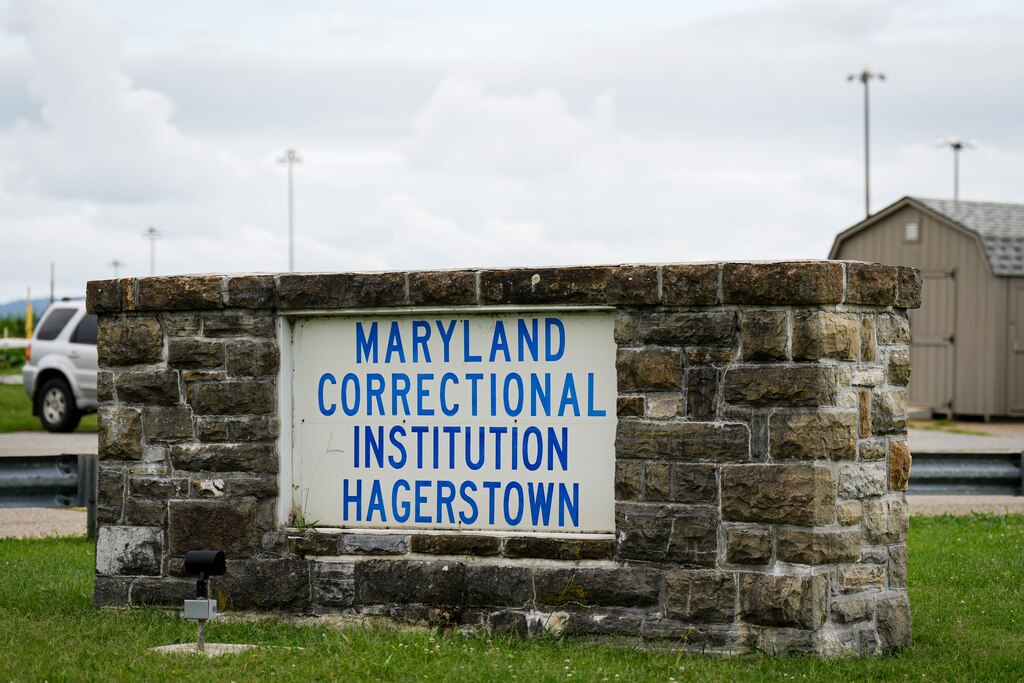Maryland lawmakers on Tuesday expressed deep frustration with corrections leaders after a scathing audit found the state provided little oversight to for-profit medical contractors in state-run prisons and jails.
For nearly two hours, the state’s public safety secretary and her deputies faced grilling from legislators trying to get a handle on a yearslong problem of understaffing and poor care provided to thousands of incarcerated people.
Carolyn Scruggs, secretary of the Department of Public Safety and Correctional Services, sought to assure lawmakers that she was focused on providing care to incarcerated individuals. She attributed flaws with prior medical care contracts to the administration of former Gov. Larry Hogan.
“This contract was procured under the previous administration. No one you see sitting before you was a part of that procurement,” Scruggs said at one point.
That did not sit well with the lawmakers on the General Assembly’s Joint Audit and Evaluation Committee who held Tuesday’s hearing.
“It’s disappointing to continually come in here and listen to these types of stories of, ‘The failures of my predecessor’ and ‘I blame it on my predecessor,’” said Del. Steve Arentz, an Eastern Shore Republican and member of the legislature’s audit committee.
“Moving forward, in four years, in eight years, you may be the fodder of this,” Arentz said. “I would like to see the state come up with a better solution, a better fix and a way to address these problems, so we don’t have to come in here and feel like we’ve done nothing.”
Auditors issued a report last week outlining a series of problems with the prior state contracts with companies that provide medical and mental health care to an estimated 18,000 people incarcerated in state facilities.
The Office of Legislative Audits’ report paints a picture of state officials turning over responsibility for maintaining the health of incarcerated people to private companies and then rarely checking in. The state didn’t verify staffing levels as reported by the companies and rarely monitored whether certain required medical and mental health exams were completed on schedule — and there was no follow up when they did find the contractors had fallen short, the audit found.
Brian S. Tanen, the state’s legislative auditor, noted that the state has historically had problems with past correctional health contractors, pointing to reports from 2007 and 2017. Given that history, the state should have put more safeguards in place to ensure that the contractors actually were caring for incarcerated people properly — and to have backup plans if they fell short, Tanen said.
“This is a perfect example of: Fool me once, shame on you. Fool me twice, three times, four times, five times — then shame on me,” Tanen said
Scruggs, who has been public safety and correctional services secretary since January 2023 and was an assistant secretary before that, said she’s “committed to doing my utmost” to address the audit’s findings. She said her department has already made some changes, including regularly doing its own audits of the contractor’s performance.
The audit covered roughly the last five years, when medical care was provided by a company now known as YesCare and mental health care was provided by Centurion of Maryland.
Centurion now holds both contracts, awarded earlier this year.
YesCare, formerly known as Corizon Health, is mired in a controversial bankruptcy proceeding and has been the subject of malpractice lawsuits in Maryland and across the country.
Lawmakers voiced concern both with the lack of oversight of the old contracts as well as how to prevent similar problems with the new contract.
At times, lawmakers struggled to get clear answers to their questions from Scruggs and her team, including how many medical and mental health professionals currently work in the prisons and jails.
At the end of one line of questioning that didn’t yield much information, an exasperated Del. Jared Solomon said: “That’s really unacceptable, but thank you for your answers.”
Solomon had been trying to understand whether state officials have given serious consideration to whether hiring for-profit companies is the best way to provide medical care — or had they ever investigated bringing the services in-house with state employees?
“Why aren’t we doing anything innovative?” asked Solomon, a Montgomery County Democrat and a co-chair of the committee. “It seems like we’re literally doing the same thing, nibbling around the edges, saying we’re going to enforce the contract better, when the entire premise of this contract seems flawed.”
Sen. Clarence Lam, a Howard County Democrat who is the other co-chair, underscored the importance of ensuring that incarcerated people have appropriate health care.
“These individuals that are incarcerated are sentenced to prison. They’re not sentenced to inadequate health, to lasting medical complications, and potentially to lasting harm,” said Lam, who is a medical doctor.

Sen. Paul Corderman, a Western Maryland Republican, brought up a problem that has lingered for years: A hospital and an EMS company in his district haven’t been paid for responding to treat patients in prisons.
Joseph Sedtal, the deputy public safety and corrections secretary, said the final payment to YesCare is being held up while the state pushes the company to pay its bills to local providers.
“They’re aware they will get paid once they make their payments,” Sedtal said of YesCare.
The hearing also revealed that an elevator at the Maryland Correctional Institution-Hagerstown has been out of service for months, requiring calls to EMS to transport patients who can’t make it down three flights of stairs to the infirmary.
Scruggs said her team is aware of the problem. They’re waiting on a part to arrive.





Comments
Welcome to The Banner's subscriber-only commenting community. Please review our community guidelines.